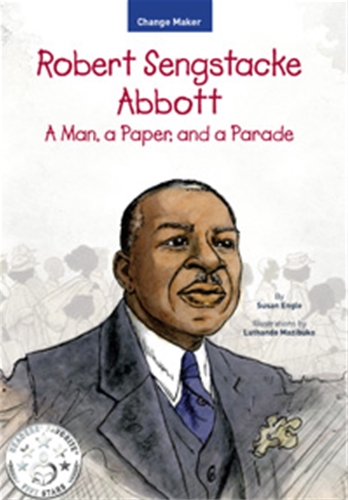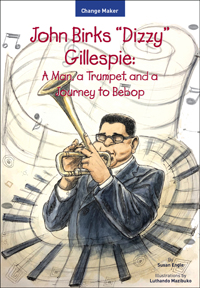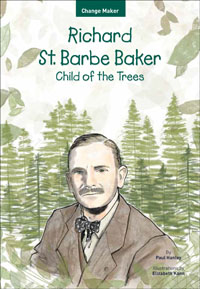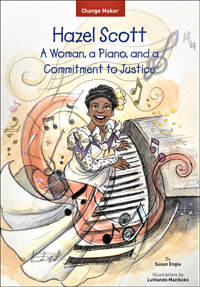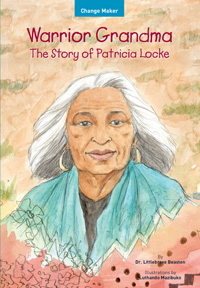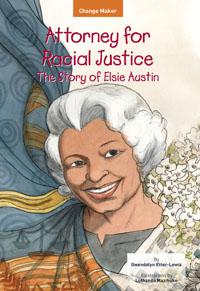Search Products
Robert Sengstacke Abbott (1870-1940) was an influential African American who founded the newspaper The Chicago Defender in 1905, one of the first newspapers written for the African American community. Through the newspaper Abbott strongly encouraged African Americans living in the South to move north. Abbott was instrumental in organizing the Bud Billiken Parade. Abbott became involved in the Bahá’í community late in his life, attracted to the teachings on religious and racial unity. This is the first book in the Change Maker Series, highlighting people connected with the Bahá’í Faith who worked to bring about social change.
Soft Cover
John Birks “Dizzy” Gillespie was a jazz musician who pioneered a new style of jazz music, known as bebop, in the 1940s. This book, written for junior youth, chronicles Dizzy’s life, beginning with his childhood in South Carolina, his move to New York City, and his eventual travels around the world. Dizzy Gillespie became a Bahá’í in 1968 and strove to be of service to others through his unique gift in music.
Soft Cover
Soft Cover
Hazel Scott was a champion for civil and women’s rights. Born in Trinidad in 1920, she moved with her family to the United States in 1924. She was a musical wonder— studying and performing on the piano from the time she was a child. She became an accomplished singer as well, and appeared in Broadway musicals, films, and recorded her own albums. She made headlines by standing up for the rights of women and African Americans, and she refused to play for segregated audiences. She learned about the Bahá’í Faith from Dizzy Gillespie and became a Bahá’í.
We invite you to learn more about this “Change Maker” and the enduring impact she had on race relations through her performing arts.
Soft Cover
Warrior Grandma: The Story of Patricia Locke by Littlebrave Beaston is the latest title in the Change Maker series. Patricia Locke—whose Lakota name, Thawáchin Wašté Win, means “Compassionate Woman”—courageously fought for the equality of Indigenous people in the United States and around the world. She was not only a staunch advocate for the rights of Indigenous people but a loving mother and grandmother.
This book teaches the values of generosity, selflessness, and the importance of building strong family relationships. Readers will learn about how prejudice affects American Indians and how Patricia advocated for equal rights for Indigenous people during her lifetime. The book also discusses the qualities of leadership, the principle of consultation, and the importance of courage and perseverance in the face of oppression and attempted assimilation. Patricia acted as a bridge between two cultures—white and Indigenous—and, even in the face of overwhelming difficulties, she always demonstrated compassion toward others. She embodied the qualities of a true Change Maker.
See other books in the Change Maker Series
Soft Cover
Elsie Austin was the first African-American woman to graduate from the University of Cincinnati School of Law in 1930. She declared her belief in Baha’u’llah in 1934 and went on to become the first African-American woman to serve as assistant attorney general for the state of Ohio. For a decade afterward, she was a foreign service diplomat and worked tirelessly on cultural and educational projects in several African countries. This book gives a fictionalized account of Elsie Austin’s life based on the author’s research of and interviews with her. It is hoped that the reader will gain an appreciation for this champion of racial justice and how she rose during her lifetime to become a Change Maker.
Soft Cover


